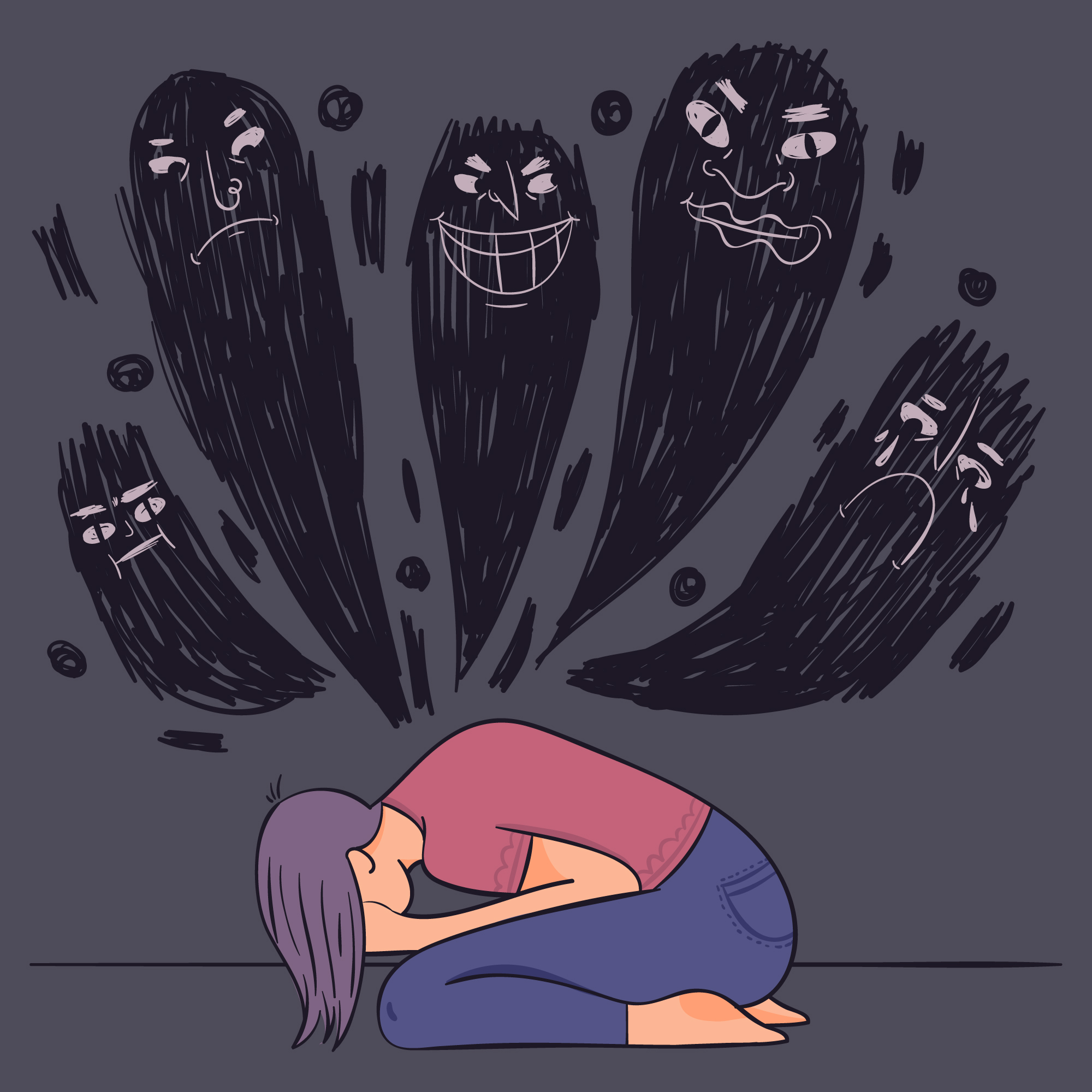They told her to be polite while she was being harmed. Now they call her difficult for saying no.
Jeannie never screamed—never yelled or stormed out or flipped a desk or tore paper into confetti; instead, she froze, and in that freezing, she vanished from their view.
No one interrupted the boy when he joked about raping her mother; no one stepped in when he pulled her hair or knocked her off the yoga ball or bumped her desk hard enough to jar her brain; no one said this is wrong when he started focussing on her body—calling her twig, tiny, light. He was 3 times her weight.
She didn’t cry at school—only at home; she didn’t tell an adult the first time he whispered something vile; she tried ignoring him, but when that didn’t work—when he got louder, more insistent—she did what so many autistic girls are conditioned to do: she chuckled, because a laugh might keep him from escalating, and silence had already failed.
That laugh—uttered under stress, unchosen—was misread as tolerance, mistaken for comfort, and treated like permission.
Masking is not consent
When you are an autistic girl, the world teaches you early—relentlessly, and without reprieve—that it is safer to be quiet, easier to be liked, and less dangerous to appear agreeable than to show your full self; that friendships are supposed to hurt, that discomfort is normal, that you should give people the benefit of the doubt, even when they frighten you.
Jeannie has learned these lessons well—she is thirteen and fluent in minimisation, fluent in masking, accomplished at staying still when she wants to run—so when a boy started testing her boundaries, she didn’t tell anyone; she tried to manage it alone.
When it escalated—when his jokes turned sexual and his touches didn’t stop and her fear moved from social to physical—she came home and sobbed in a way that left no doubt in my body that what had been happening at school was neither mutual nor minor.
I believed her—not just because I am her mother, but because I know what it costs her to speak at all after enduring harm; I know how long she waits before naming it; I know that her silence is not an absence of fear but a byproduct of it—and that when autistic girls fawn, it’s not compliance, it’s survival.
The cost of being quiet
We raised it with the school—again and again—and we spoke with the boy’s family, because we are not naïve to the complexities; we know he has ADHD, we know he’s unsupported, we know he’s going through his own crisis—but none of that changes the fact that my daughter has been hurt, repeatedly, and the adults around her have failed to keep her safe.
There was one half-day support teacher for twenty-six children; there are no adults consistently present in the classroom to track social dynamics, to mediate peer conflict, to monitor sensory distress, or to notice when a child’s face hardens into blankness for the third time in an hour.
Her classroom lacks boundaries, lacks predictability, lacks protection; and Jeannie—separated from her close friends and placed in a split-grade—she has been left to navigate that unstructured chaos alone.
So she stopped participating—gradually, then entirely; because her body did not feel safe in that space, because her nervous system was in freefall, because learning becomes impossible when survival becomes the goal.
-
No apple pie for you!
School is exhausting when you are autistic. The noise of kids and shouting makes it hard to focus. The bright lights in hallways and classrooms overwhelm me and break my brain. When someone speaks, each word feels like a puzzle I must solve.…
You made her loud
This year, she is different.
She swears now—loudly, defiantly.
Throws gang signs ironically.
She says no.
She refuses to be nice.
She’s stopped trying to earn approval from the adults who watched her suffer quietly for months and responded with nothing but paperwork and procedural apologies.
And now—now—they say she is difficult.
They say she’s oppositional. That she’s inflexible. That she’s rude or resistant or uncooperative—because she no longer chuckles when she’s scared, no longer tries to make others comfortable when she is in distress.
But they made her this way.
I blame the system that praised her composure while she was being harmed, minimised her distress because she didn’t explode, and proceeded without a reliable daily plan to make sure she feels safe in a place where she is supposed to learn.
What she needs now
She needs more than words. She needs more than an IEP that no one reads, or a weekly check-in that arrives long after the damage is done.
She needs support that is proactive, relational, responsive—someone who is there, consistently, to read her cues, to offer regulation before meltdown, to hold the line when she cannot do it alone.
She needs a classroom that understands safety isn’t just about physical proximity—it’s about relational attunement, about predictability, about the right to say no and be heard the first time.
And most of all, she needs us to stop calling autistic girls difficult when they finally stop disappearing.
-
Advocacy toolkit: resources for families navigating school harm
Some of us arrived at advocacy slowly—one red flag at a time. Some of us were pushed into it suddenly, when everything fell apart. Some of us have been writing emails in our heads for years. Some of us are just now finding…
-
If I could: A letter to my daughter before another school meeting
If I could catch you before you fall, I would. If I could make them understand—make them see you as you truly are—I would. You are doing so well, in so many ways. If I could make you feel the pride you deserve,…










